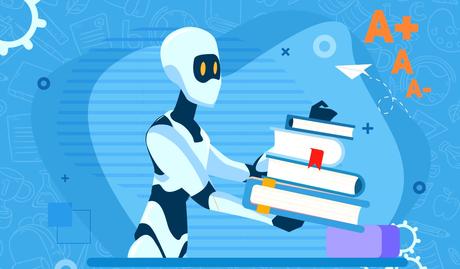Unlocking the Potential of AI Applications. Explore the transformative power of AI across industries. Discover how AI is revolutionizing processes and driving innovation.
Artificial Intelligence (AI) has emerged as a revolutionary technology that has the power to transform various industries and unlock tremendous potential. With its ability to analyze vast amounts of data, learn from patterns, and make intelligent decisions, AI has become an integral part of our lives. In this article, we will explore the diverse applications of AI and delve into how it shapes the future across different sectors.
AI refers to the simulation of human intelligence in machines that can analyze data, learn from patterns, and make informed decisions. It encompasses various technologies such as machine learning, natural language processing, computer vision, and robotics. AI applications have made significant advancements in recent years, and their applications are now pervasive across multiple industries. That’s why, we are studying AI Applications in this article.
AI in Healthcare
Enhancing Diagnostics and Treatment
AI plays a crucial role in revolutionizing healthcare by improving diagnostics and treatment processes Medical pictures like X-rays and MRIs may be analyzed using machine learning algorithms to find anomalies and help with early Identification of illness. AI-powered systems can also recommend personalized treatment plans based on patient data and medical research.
Improving Patient Care and Monitoring
AI-powered devices and wearables enable continuous monitoring of patients’ vital signs, allowing healthcare providers to detect early warning signs of deteriorating health conditions. That’s why, we are studying AI Applications in this article. These devices can track heart rate, blood pressure, and other parameters, providing real-time data that helps in proactive healthcare interventions and remote patient monitoring.
Streamlining Administrative Processes
AI streamlines administrative tasks in healthcare facilities, reducing paperwork and enhancing operational efficiency. Natural language processing algorithms can extract relevant information from medical records, automate appointment scheduling, and provide personalized patient interactions through chatbots. This automation frees up time for healthcare professionals to focus on patient care.
AI in Finance

Predictive Analytics and Risk Assessment
AI algorithms excel at analyzing vast amounts of financial data to predict market trends and identify potential investment opportunities. These predictive analytics help financial institutions optimize their investment strategies and mitigate risks. That’s why, we are studying AI Applications in this article. AI-powered risk assessment models can also detect suspicious activities and prevent fraudulent transactions.
Fraud Detection and Prevention
AI-based fraud detection systems can analyze patterns in financial transactions to identify anomalies that indicate fraudulent activities. Machine learning algorithms learn from historical data to continuously improve their accuracy in detecting fraud. By promptly identifying and preventing fraud, financial institutions can safeguard their assets and protect their customers.
Read more: The Power of Artificial Intelligence
Algorithmic Trading and Portfolio Management
AI has transformed the landscape of trading and portfolio management. Algorithms can analyze market data, news sentiment, and other factors to make rapid and informed trading decisions. Automated trading systems execute trades based on predefined rules, optimizing investment strategies and minimizing human error.
AI in Manufacturing
Process Optimization and Automation
AI enables process optimization and automation in manufacturing industries. Machine learning algorithms can analyze sensor data from machines to identify patterns that indicate potential faults or breakdowns. This predictive maintenance approach helps minimize downtime and improve overall productivity. Additionally, AI-powered robots can automate repetitive tasks, leading to increased efficiency and reduced costs. That’s why, we are studying AI Applications in this article.
Quality Control and Predictive Maintenance
AI systems can enhance quality control processes by identifying defects and anomalies in real time. Computer vision algorithms analyze images and detect product defects, ensuring only high-quality items reach the market. Predictive maintenance algorithms can predict machine failures based on sensor data, allowing proactive maintenance to prevent unexpected breakdowns.
Supply Chain Management
AI optimizes supply chain management by analyzing historical data, demand forecasts, and market trends. AI algorithms can predict demand patterns, optimize inventory levels, and streamline logistics operations. The application of AI help businesses reduce costs and meet customer expectations by minimizing inefficiencies and ensuring timely deliveries.
AI in Transportation

Autonomous Vehicles and Navigation
AI powers the development of autonomous vehicles, which have the potential to revolutionize transportation. Self-driving cars rely on AI algorithms to perceive their surroundings, make decisions, and navigate safely. That’s why, we are studying AI Applications in this article. These vehicles can improve road safety, reduce traffic congestion, and provide mobility solutions for individuals who cannot drive.
Read more: The Basics of Machine Learning and AI
Traffic Optimization and Management
AI-based traffic management systems use real-time data to optimize traffic flow and minimize congestion. By analyzing data from various sources, including sensors and cameras, AI algorithms can predict traffic patterns and dynamically adjust signal timings. This proactive approach to traffic management enhances commuting experiences and reduces travel times.
Predictive Maintenance and Safety Enhancements
AI helps ensure the safety and reliability of transportation systems through predictive maintenance. Machine learning algorithms can analyze sensor data from vehicles to detect potential faults and recommend maintenance actions. Additionally, AI-powered systems can identify hazardous road conditions and provide alerts to drivers, enhancing overall safety on the roads.
AI in Customer Service
Chatbots and Virtual Assistants
Customer support interactions are changing as a result of chatbots and virtual assistants driven by AI. These intelligent systems can provide instant responses to customer queries, assist with product recommendations, and handle routine tasks such as order tracking. By leveraging natural language processing and machine learning, chatbots enhance customer satisfaction and improve response times.
Personalized Recommendations and Customer Insights
AI enables businesses to deliver personalized recommendations to customers based on their preferences and behavior. Recommendation algorithms analyze user data and historical patterns to suggest relevant products or services, enhancing the customer experience. Moreover, AI algorithms can analyze customer feedback and sentiment to gain insights into customer preferences and improve products or services accordingly.
Sentiment Analysis and Feedback Processing
AI systems can analyze customer feedback, reviews, and social media posts to perform sentiment analysis. By understanding customer sentiment, businesses can gauge customer satisfaction levels, identify areas for improvement, and tailor their offerings to meet customer expectations. This valuable feedback processing helps businesses build stronger customer relationships and improve their brand reputation.
Read more: How to Work Artificial Intelligence in Business
AI in Education

Intelligent Tutoring Systems
AI-powered intelligent tutoring systems provide personalized learning experiences to students. These systems can adapt to individual learning styles, identify knowledge gaps, and provide targeted feedback. By leveraging AI, education can become more accessible and tailored to each student’s needs, fostering better learning outcomes.
Adaptive Learning Platforms
AI enables adaptive learning platforms that customize educational content based on student progress and performance. Machine learning algorithms analyze student data to recommend appropriate learning materials, adapt the difficulty level of assignments, and provide targeted interventions. Adaptive learning platforms empower students to learn at their own pace and improve their academic achievements.
Automated Grading and Assessment
AI can automate grading and assessment processes, saving educators significant time and effort. Natural language processing algorithms can analyze written responses and provide instant feedback to students. Additionally, AI-powered assessment systems can evaluate student performance based on predefined criteria, ensuring fairness and consistency in grading.
AI in Agriculture
Precision Farming and Crop Management
AI technologies assist in precision farming by analyzing data from sensors, satellites, and drones. Machine learning algorithms can provide insights into soil quality, moisture levels, and nutrient requirements, enabling farmers to optimize resource allocation and improve crop yields. AI-powered systems also support crop management by identifying diseases, pests, and weeds, facilitating timely interventions.
Livestock Monitoring and Disease Detection
AI-based systems monitor the health and behavior of livestock, enabling early disease detection and prevention. Sensors and cameras collect data on animal activity, feeding patterns, and vital signs. AI algorithms analyze this data to identify abnormalities and alert farmers to potential health issues, ensuring timely veterinary care and minimizing livestock losses.
Soil Analysis and Crop Yield Optimization
AI algorithms can analyze soil samples to assess nutrient content, pH levels, and other factors affecting crop growth. This analysis helps farmers make informed decisions about fertilizer application, irrigation schedules, and crop rotation. By optimizing these factors, AI maximizes crop yield and reduces environmental impact.
AI in Cybersecurity
Threat Detection and Prevention
AI is essential for cybersecurity because it can identify and stop online threats. Machine learning algorithms analyze network traffic patterns and identify anomalies that indicate potential attacks. AI-powered systems can also learn from historical data to recognize known patterns of malicious activities, strengthening the overall security posture of organizations. For details of AI Applications study this article completely.
Behavioral Analysis and Anomaly Detection
AI algorithms analyze user behavior and identify deviations from normal patterns to detect potential insider threats or unauthorized access. By continuously monitoring user activities, AI-powered systems can provide early warnings of suspicious behavior and trigger appropriate security measures. This proactive approach to cybersecurity minimizes the risk of data breaches and unauthorized access.
Data Privacy and Identity Protection
AI assists in safeguarding data privacy and protecting identities in the digital realm. AI-powered systems can detect patterns of sensitive information and ensure compliance with data protection regulations. Additionally, facial recognition and biometric technologies powered by AI enhance identity verification processes, making them more secure and reliable. For details of AI Applications study this article completely.
Ethical Considerations of AI
Ethical issues are becoming more crucial as AI develops. It is crucial to address issues such as bias in AI algorithms, privacy concerns, and the impact of AI on job displacement. Striking the right balance between technological innovation and ethical principles is essential to ensure the responsible and beneficial use of AI in society.
Here are some ethical considerations related to AI:
Transparency and Explainability
AI systems should be transparent and provide explanations for their decision-making processes. Users and stakeholders should have a clear understanding of how AI algorithms arrive at their conclusions. Explainable AI promotes trust and accountability, allowing for better assessment of fairness and potential biases.
Privacy and Data Protection
AI relies heavily on data, often personal and sensitive information. It is essential to ensure robust data privacy and protection measures throughout the entire AI lifecycle. This includes collecting and handling data responsibly, obtaining informed consent, and implementing secure storage and processing practices.
Bias and Fairness
AI algorithms can inadvertently perpetuate biases present in the data they are trained on. It is crucial to address and mitigate biases to ensure fairness in AI decision-making. This involves diverse and representative data sets, regular audits of algorithms for bias, and continuous monitoring for fairness.
Accountability and Liability
As AI systems make decisions that can have significant impacts, it is necessary to establish clear accountability and liability frameworks. Determining who is responsible for AI errors or harm is important for legal and ethical reasons. Ensuring accountability encourages the development of robust and reliable AI systems.
Human Oversight and Control
AI should be developed and deployed with proper human oversight and control. While AI can automate tasks and assist decision-making, ultimate responsibility should remain with human operators. For details of AI Applications study this article completely. Human judgment and intervention are necessary to address complex and contextual considerations that AI may not fully comprehend.
Employment and Job Displacement
The widespread adoption of AI technologies raises concerns about potential job displacement. It is important to consider the impact on the workforce and ensure that appropriate measures, such as retraining and upskilling programs, are in place to support individuals affected by AI-driven automation.
Social Impact and Inequality
AI has the potential to exacerbate existing social inequalities if not properly managed. It is crucial to assess and mitigate the societal impact of AI applications, ensuring that benefits are equitably distributed, and marginalized communities are not further disadvantaged.
Security and Cybersecurity
AI systems can be vulnerable to attacks and exploitation. Ensuring robust security measures, such as encryption, access controls, and regular vulnerability assessments, is essential to protect AI systems from malicious actors and safeguard sensitive data.
Addressing these ethical considerations is vital to harness the full potential of AI and AI Applications while ensuring that their development and deployment align with ethical principles, fairness, and societal well-being. For details of AI Applications study this article completely.
Conclusion
AI has unlocked immense potential across various industries, revolutionizing processes, and enhancing outcomes. From healthcare to finance, manufacturing to transportation, AI is reshaping the way we live and work. AI Applications. By harnessing the power of AI, we can solve complex problems, drive innovation, and create a future where technology complements and empowers human capabilities. For details of AI Applications study this article completely.
FAQs About Applications
What are the limitations of AI?
AI has limitations, such as the inability to fully understand context or emotions. It can also be vulnerable to biases present in the data it learns from. Additionally, AI systems and Applications may lack common sense reasoning abilities and struggle with complex decision-making. For details of AI Applications study this article completely.
Will AI replace human jobs?
While AI automation may impact certain job roles, it also creates new opportunities and shifts the nature of work. AI is more likely to augment human capabilities rather than replace humans entirely. It can automate repetitive tasks, allowing humans to focus on higher-level cognitive and creative work.
How can AI Applications benefit smaller businesses?
AI offers several benefits to smaller businesses, including improved operational efficiency, better customer service through chatbots and personalized recommendations, and access to data-driven insights for decision-making. For details of AI Applications study this article completely. AI tools Applications, and platforms are becoming more accessible and affordable, leveling the playing field for smaller enterprises.
Is AI biased in decision-making?
AI systems can be biased if they are trained on biased data or if their algorithms incorporate biases inadvertently. It is essential to ensure that AI algorithms are designed and trained with fairness and inclusivity in mind, addressing biases and promoting unbiased decision-making.
What are the future possibilities of AI Applications?
The future possibilities of AI are vast and exciting. We can expect advancements in areas such as healthcare diagnostics, autonomous vehicles, personalized learning, smart cities, and more. AI Applications will continue to evolve, empowering industries and transforming the way we live and interact with technology. For details of AI Applications study this article completely.
